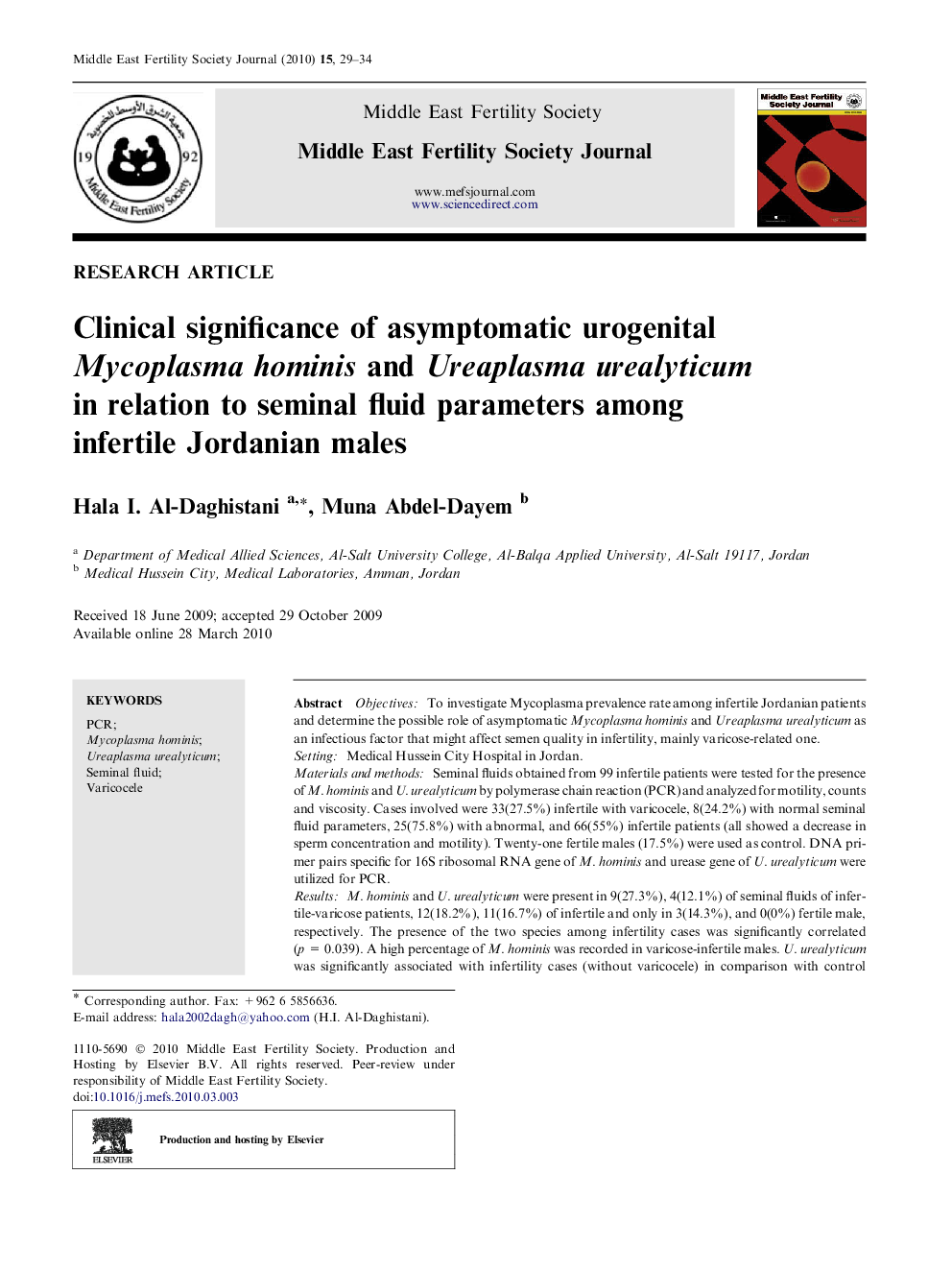| کد مقاله | کد نشریه | سال انتشار | مقاله انگلیسی | نسخه تمام متن |
|---|---|---|---|---|
| 3966478 | 1256159 | 2010 | 6 صفحه PDF | دانلود رایگان |

ObjectivesTo investigate Mycoplasma prevalence rate among infertile Jordanian patients and determine the possible role of asymptomatic Mycoplasma hominis and Ureaplasma urealyticum as an infectious factor that might affect semen quality in infertility, mainly varicose-related one.SettingMedical Hussein City Hospital in Jordan.Materials and methodsSeminal fluids obtained from 99 infertile patients were tested for the presence of M. hominis and U. urealyticum by polymerase chain reaction (PCR) and analyzed for motility, counts and viscosity. Cases involved were 33(27.5%) infertile with varicocele, 8(24.2%) with normal seminal fluid parameters, 25(75.8%) with abnormal, and 66(55%) infertile patients (all showed a decrease in sperm concentration and motility). Twenty-one fertile males (17.5%) were used as control. DNA primer pairs specific for 16S ribosomal RNA gene of M. hominis and urease gene of U. urealyticum were utilized for PCR.ResultsM. hominis and U. urealyticum were present in 9(27.3%), 4(12.1%) of seminal fluids of infertile-varicose patients, 12(18.2%), 11(16.7%) of infertile and only in 3(14.3%), and 0(0%) fertile male, respectively. The presence of the two species among infertility cases was significantly correlated (p=0.039). A high percentage of M. hominis was recorded in varicose-infertile males. U. urealyticum was significantly associated with infertility cases (without varicocele) in comparison with control (p=0.046). It exerts a minor effect on the mean values of sperm motility by decreasing a and b grades’ motility.ConclusionThe differences in the occurrence of M. hominis were statistically insignificant among infertility and control groups, but it was significant for U. urealyticum (p=0.046). M. hominis occurs more frequently in the semen of infertile-varicose male and normal seminal fluid quality. It seems to have no adverse effects on sperm motility but it might decline the fertility potential in such cases. U. urealyticum on the other hand have no clear significant impacts on sperm motility. The mean values for sperm motility, concentrations, and viscosity were not affected by the presence of the two species. Despite the significant presence of Ureaplasma among infertility, further studies were needed to clarify their potential effect on semen quality and infertility status.
Journal: Middle East Fertility Society Journal - Volume 15, Issue 1, January 2010, Pages 29–34